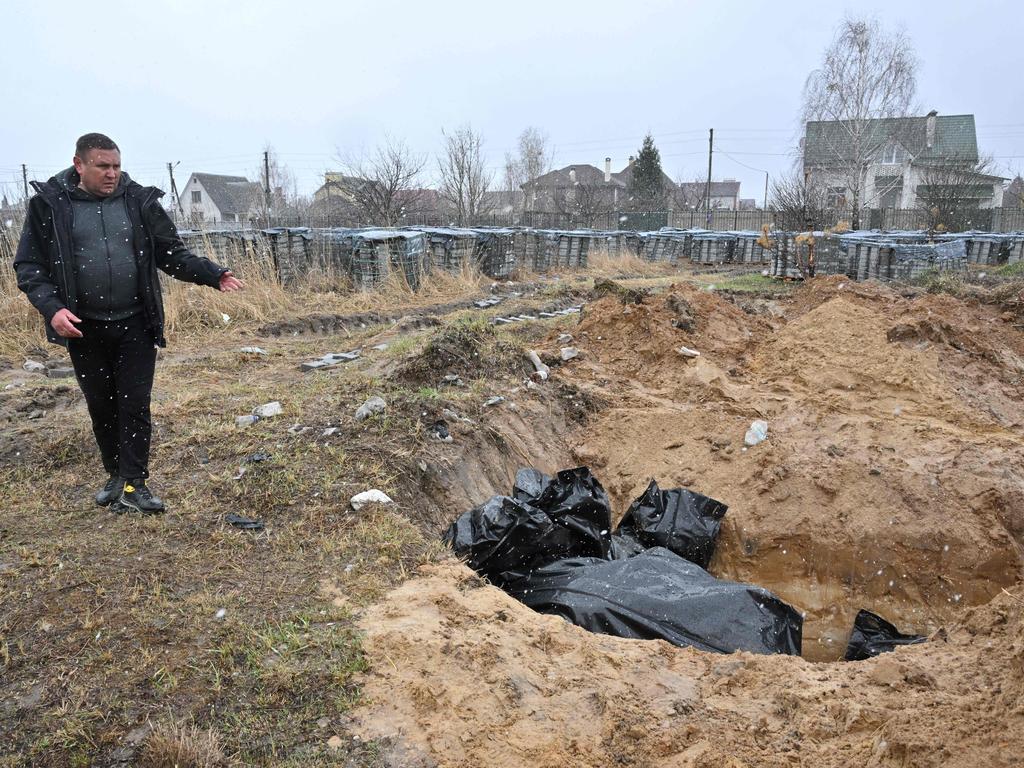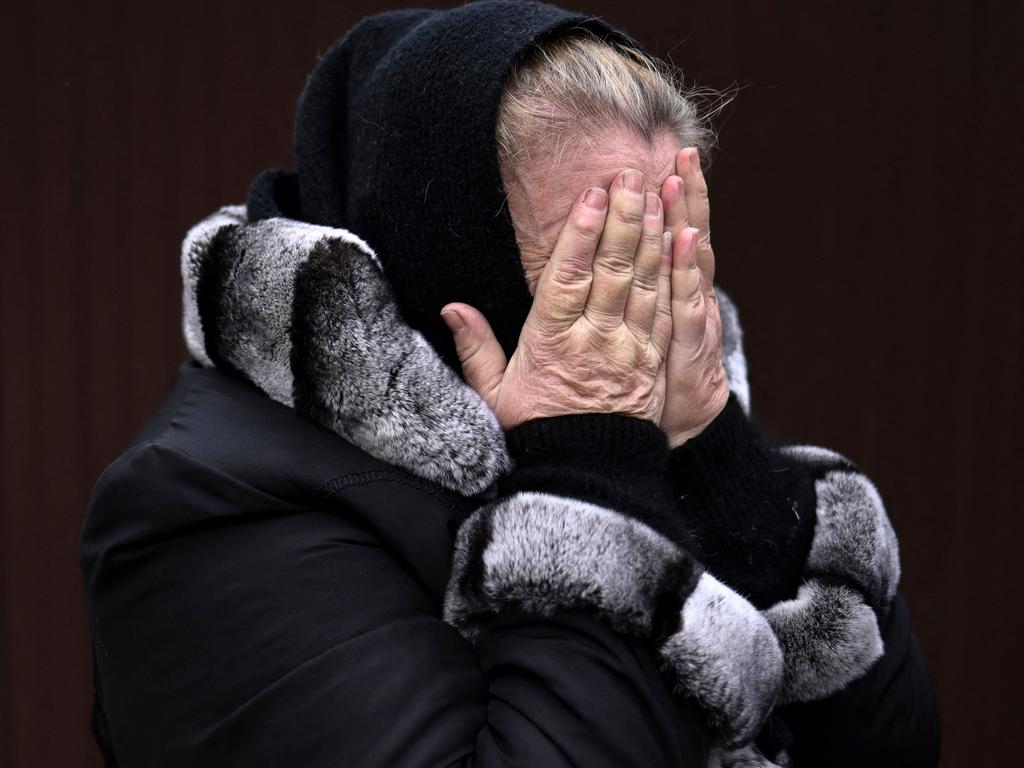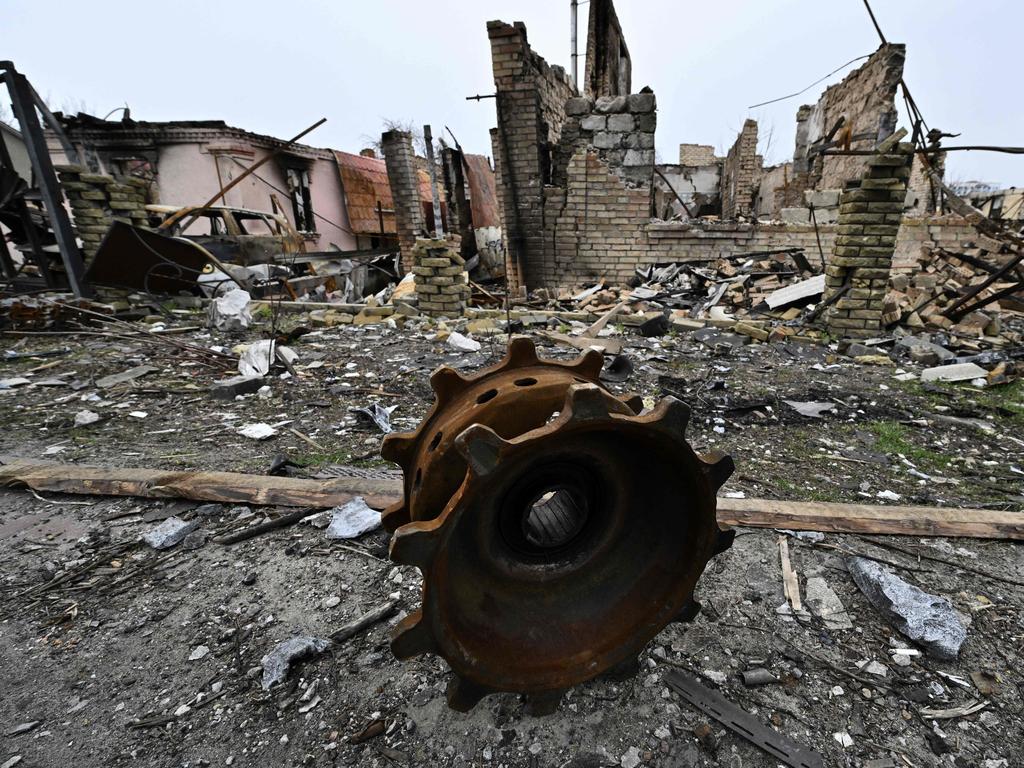Russia turned a Bucha building into an execution site and underground prison
A four-story building was one of the first sites where Ukrainians were questioned, tortured, killed or detained.
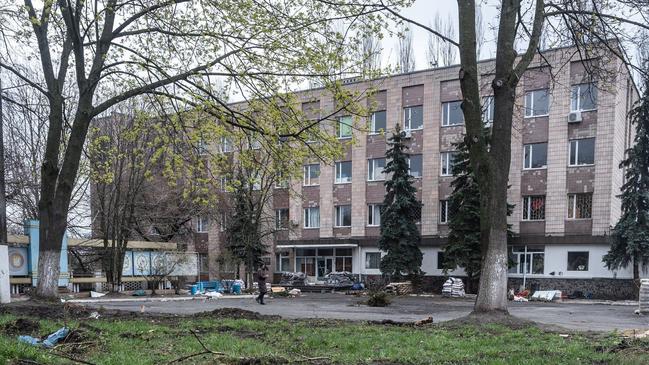
The Russian troops arrived in waves in Bucha, each one crueller than the last, residents said, all seeking to hold this once sleepy town outside Kyiv through fear, manipulation and coercion.
The soldiers, a combination of infantry soldiers, paratroopers and troops associated with Russia’s mercenary Wagner Group, set up headquarters in the town to prepare for the coming assault on Kyiv, said Ukraine’s military and Ukrainian officials.
The nerve centre of their operations was a Soviet-era building on 144 Yablunska Street.
Soldiers stationed there and in smaller outposts up and down the street guarded it fiercely, turning the leafy road that translates as Apple Street into the scene of some of the grisliest killings of Ukrainians that have come to light since the start of the conflict.
The nondescript four-storey office building on the town’s southernmost stretch was one of the first sites where Ukrainians were questioned, tortured, killed or detained, according to Bucha residents and local officials.
Nearly 100 soldiers were housed at 144 Yablunska Street, along with sensitive radio-electronic equipment used to control operations in Bucha, as well as in the nearby towns of Irpin and Hostomel, Ukrainian officials said last week.
More than 30 Russian military units in all came through Bucha, mostly from Russia’s Far East and Siberia, including the 14th Separate Special Forces Brigade from Khabarovsk, the 38th Separate Motorised Rifle Brigade and paratroopers from Pskov, in western Russia.
Bucha Mayor Anatoly Fedoruk said the Russians divided the city into several zones and worked through a list of some 40 names of local politicians and state officials who lived in each zone, detaining and killing those they found.
He said he saw his name was at the bottom of the first of two pages of names not listed in alphabetical order. The mayor managed to avoid the Russians. Russian troops shot and killed the mayor of neighbouring Hostomel as he was handing out aid to residents.
When Mykola Zakharchenko, who worked as a security guard on the grounds of 144 Yablunska Street before the Russians arrived, was detained on March 4 with another man, the grounds of the building were already strewn with dead bodies.
The two were led with their hands in the air to a side yard where the bodies of seven men who had been shot were lying face down in pools of blood.
The Russian troops told them to look at the bodies, get on their knees and confess to being members of the Ukrainian resistance.
Mr Zakharchenko said he wasn’t fighting and handed over his phone, a late-model iPhone his son had given him, so the Russian soldiers could check the contacts and photographs.
He watched a Russian soldier download the contents of his phone on to a computer and then look up his domestic identity number. The Russian officer then asked him about time he had spent in the Russian city of Tula as a welder in 2018.
“We’ve seen your proletariat past,” said the officer, who was wearing paratrooper gear according to Mr Zakharchenko.
“Get inside.”
For the next four days, Mr Zakharchenko lived in the headquarters’ basement, a Soviet-era bomb shelter turned underground prison, with some 130 other people.
They were given leftover food and military meals for days as the men, women and children struggled to find space to lay down at night.
“Our knees almost gave out when we went down,” he said. “The smell was strong.”
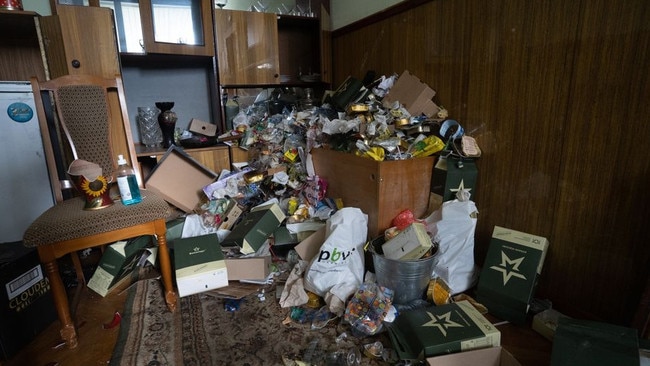
Over the next weeks, the Yablunska Street headquarters became chaotic. Blood from those shot and dragged from room to room stained the floors. Rubbish piled in the hallways, and bottles of beer and wine littered the floor. Human excrement piled up in buckets and on the floor.
There was similar violence at other Russian bases on Yablunska Street and nearby. Russian soldiers took over one yellow, two-storey house with an adjoining garage, where, neighbours said, people were led and shot.
Northwest of 144 Yablunska Street, Russian troops holed up in buildings a few streets away from one another, one at 7 Ostrovsky Street and another at 104 Vokzalna Street, close to the site where Ukrainian forces destroyed a Russian armoured column the day Russia rolled into town.
One Bucha resident who said she was inside the Ostrovsky address described the soldiers who stayed there. “They drank there,” she said. “They had fun there. They were having a party.”
She said many of the soldiers at the Ostrovsky building were young and frightened, brought to tears by the strain of the war.
“They wanted their mother,” she said. “They didn’t want to fight.” She added that they said they were forced to kill people.
Russian troops took over a children’s camp, digging trenches at its entrance. When the Russians left, local residents found five people there with their hands tied. They had been shot in the back of the head. Radio equipment and documents were left in another makeshift base.
In the centre of Bucha, some Russian troops looted not just supermarkets but the local hospital as well, taking surgical tools and equipment for a field hospital they had set up in Hostomel.
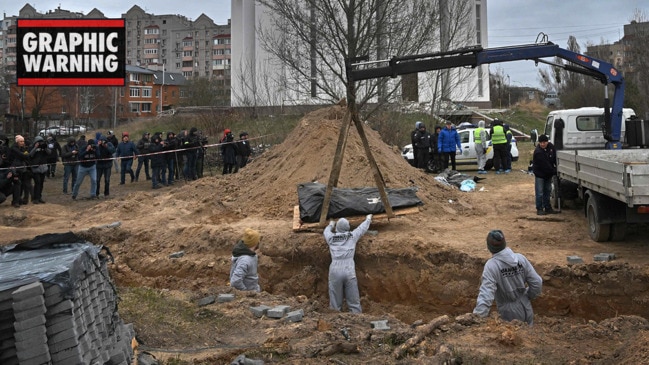
Anton Dovhopol, the head doctor at the Bucha hospital, suggested to Russian soldiers that they dig mass graves to prevent the dead bodies from spreading disease.
He also asked them to give civilians more time to get home before curfew. Since the Russians didn’t change their clocks to Ukrainian time when they invaded, civilians and troops were running on two different clocks.
“It was the difference between curfew times, that was when most people died,” he said.
He said that on March 11 one of the top officers that patrolled the centre of the city, a soldier identified by Ukrainian authorities as Artyom Lazerev, went into the hospital and suggested Dr Dovhopol become acting mayor under the Russians, a role that would have forced him to appear in videos appealing to residents to obey the Russians.
“He was euphoric, telling me in front of all my subordinates that they were protecting the Russian world and that together we can build a wonderful future,” said Dr Dovhopol.
The Russian officer said he would be back the next day to make sure Dr Dovhopol agreed. Within hours, the doctor left the city.
“If I had refused, they would have shot me in the head,” he said. “Thank goodness we managed to get out.”
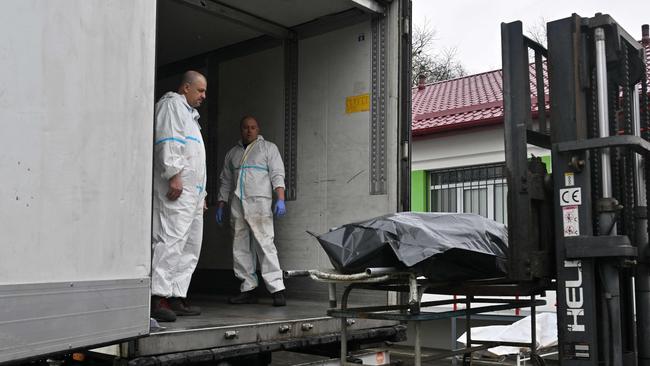
After the city descended into panic during the Russian troops’ occupation, the town woke up one morning to find them gone.
“We were living in bomb shelters the whole time, we had no idea they had left until the shooting stopped,” said Lidia, a cleaner at a church across the street from the children’s camp.
Some of the Russian soldiers who were in Bucha returned home to awards. The 64th Separate Motorised Rifle Brigade, one of the units that occupied Bucha, received one of the military’s highest honours from Russian President Vladimir Putin following the withdrawal, turning it into an elite Guards Brigade.
“Putin knew about the atrocities his soldiers committed here and all he could say was ‘good job’,” said Mr Fedoruk.
Moscow has denied targeting civilians in its military assault on Ukraine and called video and photographic images from Bucha staged.
The Wall Street Journal

